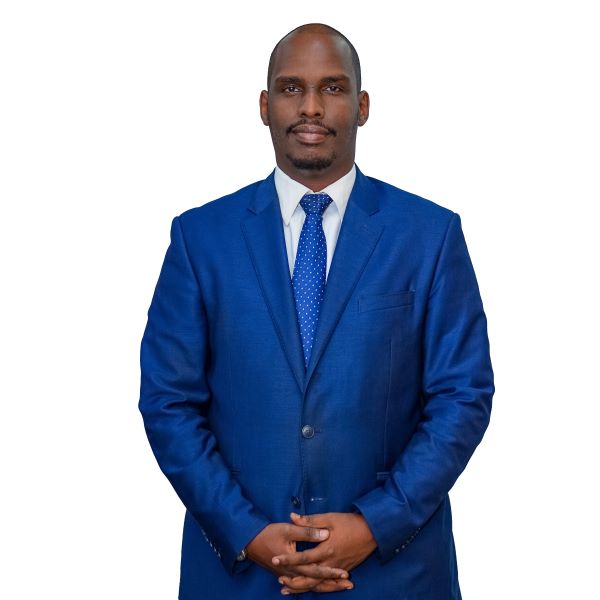
Our Projects are
Transforming African Trade
Quick Contacts
2nd Floor, Fidelity Insurance Centre Waiyaki Way, Westlands
Since 2005, Burundi’s annual economic growth rate has averaged 4.5%. As a land locked country, it faces economic challenges including high transport costs, a high trade deficit, a narrow export base. 90% of the population is dependent on subsistence agriculture. Following presidential elections in April 2015, the situation has descended into political insecurity and economic decline in the country.
If the current political situation persists, Burundi may remain fragile in medium term, causing risk to the most vulnerable in society. Allegations of human rights abuses also constrain economic activity. Private sector investment has shrunk and the public sector is constrained by falling domestic revenue as well as reduction in external aid flows from donors.


TMA’s programme is well aligned with Burundi’s key priorities while meeting TMA’s core mission of generating prosperity through trade. TMA funded a total of 28 projects valued at $ 61.7M in Strategy 1.
Whilst improvements have been made in connecting Burundi to the region through the Northern and Central corridors, a supply response is lacking. In Strategy 2, TMA will adopt a market-integrated approach to economic development to address this constraint. The programme will focus investment in high potential areas and offer a mechanism for supporting vulnerable groups should Burundi’s political situation deteriorate.
Women’s economic empowerment remains a key cross-cutting issue. In line with TMA’s strategy on fragile and conflict countries, TMA will deliver programming based on a short term, medium term and long-term approach.
In the short term, the programme will lean towards private sector driven projects. Over the medium term (second and third year of Strategy 2), and if the country’s governance record improves, the programme will re-engage with the Government and diversify its portfolio by investing in trade facilitation measures. A more optimistic programme is envisioned after year 3, where TMA will upscale projects if the political and security situation allows. Programming is premised on the assumption that Burundi’s political situation will stabilise to allow for continued engagement. TMA will adapt its programme to the conditions of fragile and conflictaffected states.
| Complementary work for Kobero OSBP (including IBM) | Improved efficiency of cross-border infrastructure at OSBP Kobero |
|---|---|
| Gatumba/Kavinvira OSBP (DRC/ UVIRA – including IBM) and the secondary border posts | Improved efficiency of cross border infrastructure at Gatumba/Kavinvira and at 7 selected secondary border posts |
| Upgrade the Port of Rumonge | Improved efficiency of port infrastructure at Rumonge. |
| Safety and navigation on Lake Tanganyika | Improved efficiency of port infrastructure at Bujumbura and Rumonge |
| Elimination of Non-Tariff Barriers | Improved effectiveness of mechanisms and institutional coordination to respond to elimination of NTBs affecting exports from and imports to Burundi. |
|---|
| Enhance advocacy for trade led by private sector and civil society | Enhanced quality of private sector/ civil society-led policy formulation for trade; Enhanced policy/regulatory environment for women traders and SMEs |
|---|
| Improve logistics infrastructure capacity and services in Burundi | Enhanced logistics infrastructure capacity in Burundi; Enhanced capacity in provision of trade logistics services in Burundi |
|---|
| Export growth for export ready businesses, trade in services,market research and understanding the market dynamics | Increased revenues and export in TMA targeted areas and sectors |
|---|
| Women export growth for women export ready businesses and cross border trade | Increased access to market and trading information by women traders |
|---|
economic growth
net added to total trade (2.4% increase above trend)
Exports from EAC to the rest of the world
net added to exports (4.3% increase above trend)
Intra EAC exports (US$ billion)
net added to exports (4.3% increase above trend)
Highlights of key projects and impactin Burundi – 2010 to 2017 text paragraph
| Where We Work | Results To Date | |
|---|---|---|
| Infrastructure development at Kobero on the border with Tanzania to support physical access to market |
|
| Where We Work | Results To Date | |
|---|---|---|
| Set up and operationalise the Burundi Revenue Authority (OBR) to improve government revenue collection. |
|
|
| Equipping the Burundi Bureau of Standards | Increased number of product tests that can be performed from 3 to 47. Facilitate Bureau of Standards staff certification in ISO QMS 9001 and 22000 |
| Where We Work | Results To Date | |
|---|---|---|
| Give a voice to the private sector to influence policy | Removal of Tanzanian transit levies for 20ft and 40ft containers, as well as a reduction of its overall fee for Burundi trucks in transit by 70% (from $500 to $152 per truck |
economic growth
net added to total trade (2.4% increase above trend)
Exports from EAC to the rest of the world
net added to exports (4.3% increase above trend)
Intra EAC exports (US$ billion)
net added to exports (4.3% increase above trend)

Christian Nibasumba is the Country Representative of TradeMark Africa in Burundi since 2019, where he oversees operations and works closely with government agencies, the donor community, private sector, and civil society organizations to steer TMA ambitions in Burundi.
With fourteen years’ work experience in various functions, primarily in economic development as well as program and grants management, Christian has in his previous career, served as Africa Regional Advisor on Economic Inclusion at Christian Aid, Grants Manager of the Public Diplomacy Section at the United States Embassy in Bujumbura, and Deputy Director of the Burundi Business Incubator.
He holds a Master’s degree MBA-Finance from United States International University-USIU-Nairobi and a Bachelor’s degree in business management & administration from Uganda Martyrs University. In 2018, Christian took part in the “Leading Economic Growth” program at Harvard Kennedy School, Boston-USA. Christian is a Certified “Business Edge” Trainer, a program by the IFC- World Bank and Alumnae of the French African Foundation. Christian additionally sits on KCB Burundi board as an independent/non-executive director, since 2021
Email:Christian.nibasumba@trademarkafrica.com
Phone:+257 22 277 101